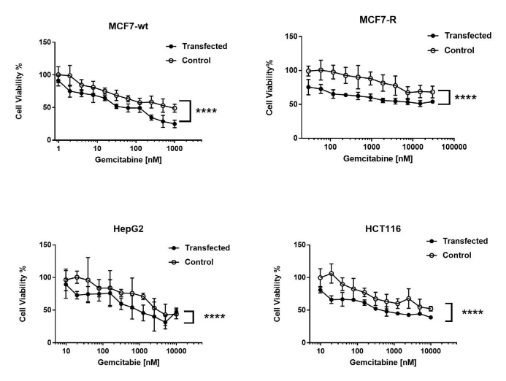
Background
According to World Health Organization (WHO), cancer is the second major source of death worldwide. In general, lung, breast and colorectal cancer are the most prevalent types of cancer. Treatment strategies mainly rely on surgery, radiations and chemotherapy approaches but do not effectively treat the disease in most of the cases.
Moreover, metastasis and drug resistance in cancer patients further complicate treatment options. Reversal of drug resistance and targeted killing of cancer cells are important objectives of cancer therapy. Nucleoside analogues are prodrugs commonly represented in clinical use, which upon activation interfere with DNA replication and eventually cause cell death. Furthermore, gemcitabine is a potent anti-cancer drug, and it has been tested in combined gene-directed enzyme prodrug therapy (GDEPT), also known as suicide gene therapy.
Methods
In this study, we have used a mutant version of nucleoside kinase gene from a fruit fly (Drosophila melanogaster), called DmdNKΔC20, to transfect three different cancer cell lines (lung, breast and liver cancers) using lipid mediated delivery system. After successful delivery, the mutant nucleoside kinase increased the sensitivity of aforementioned cancer cell lines towards gemcitabine. Moreover, we transfected gemcitabine resistant breast cancer cells with DmdNKΔC20 and as a result, these cancer cells showed a reversal in drug resistance.
Results
Overall, our findings highlight the importance and therapeutic potential of DmdNKΔC20 in combined gene/chemotherapy approach to target a wide range of cancers, particularly gemcitabine resistant cancers.
Leave a Reply